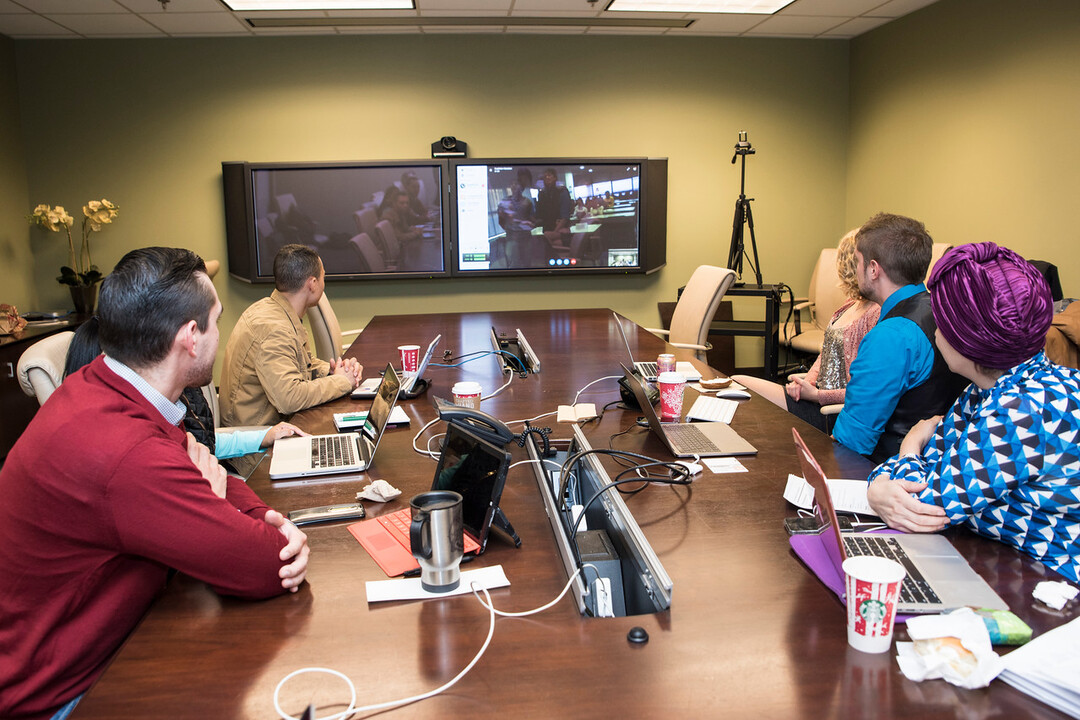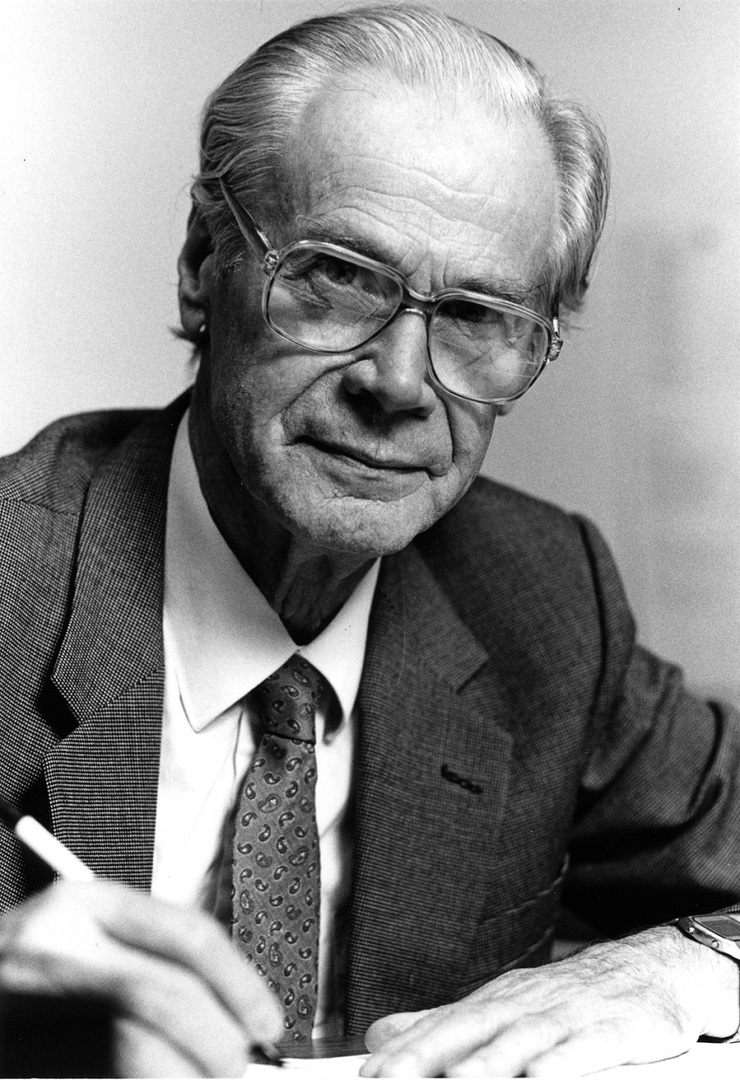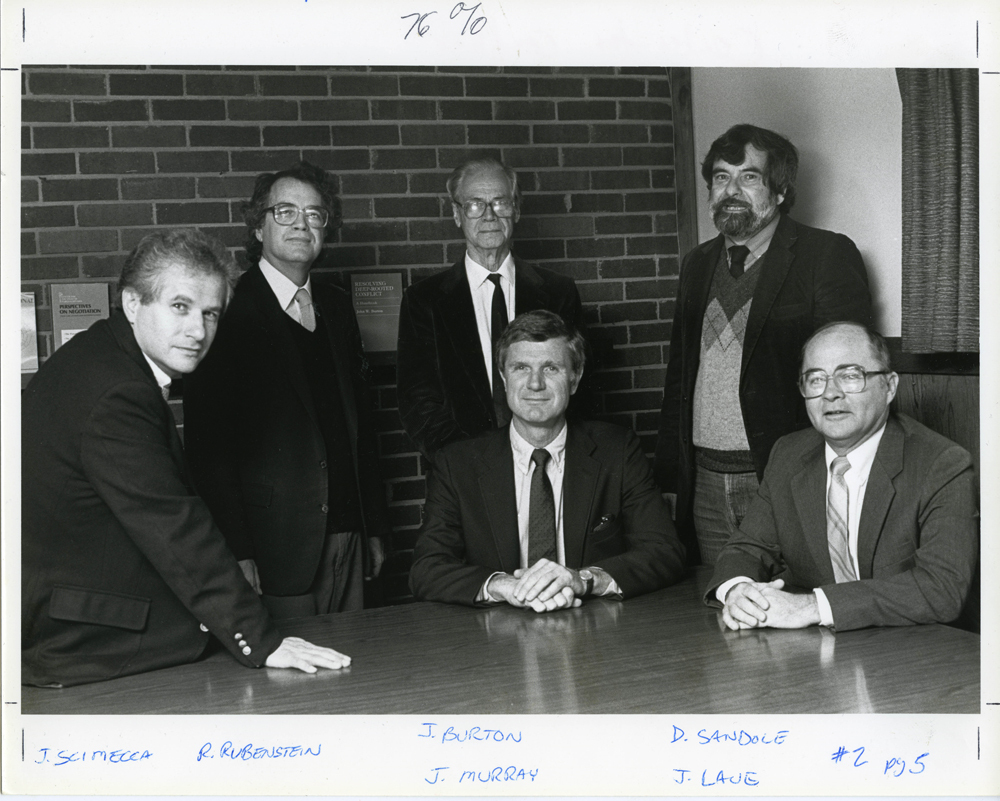The Jimmy and Rosalynn Carter School for Peace and Conflict Resolution
Evolving in the Field of Peace Studies for Over Forty Years

The Jimmy and Rosalynn Carter School for Peace and Conflict Resolution has been evolving for over forty years. Still its mission to develop professionals who can identify sources of conflict and create peaceful change in those situations has not changed.
The Jimmy and Rosalynn Carter School for Peace and Conflict Resolution (The Carter School) has been evolving and growing ever since its inception in 1981. Its name has changed several times—it has been known as the Center for Conflict Resolution, the Center for the Analysis and Resolution of Conflict, the Center for Conflict Analysis and Resolution, the Institute for Conflict Analysis and Resolution (ICAR), the School for Conflict Analysis and Resolution (SCAR), and, finally, the Carter School. Originally a small unit housed in a module, another word for a temporary building, on the Fairfax Campus, the Carter School is now an integral part of the Mason Square Campus, home to the university's most high-visibility programs.
In 1981 Mason established Mason's Center for Conflict Resolution under professors Bryant Wedge and Henry Barringer. The idea for the program stemmed from earlier proposals in the 1970s to establish a United States Academy of Peace. Dr. Wedge, a social psychiatrist, was the Center’s first director. Wedge believed that conflict is an inevitable part of the human condition, and that conflict itself can be managed. Unmanaged conflict can lead to war, and war should be avoided at all costs. These ideas informed the Center's original mission statement. While Wedge and Barringer’s offices were in Fenwick Library, the Center was housed in the Humanities Module which stood in the spot now occupied by today's Johnson Learning Center. By 1983 the Center would call the former Robinson Hall its home.
The Center focused on four distinct activities—research, instruction, clinical service, and outreach. An on-campus dispute resolution service, the Conflict Clinic, Inc., operated in the Center's office in the Humanities Module. By 1987 the faculty included esteemed and well-published professors Dr. Dennis J. Sandole, Dr. James H. Laue, a civil rights activist and associate of Dr. Martin Luther King, Jr.; Dr. John W. Burton, a former Australian diplomat and pioneer in conflict resolution; Dr. Joseph Scimecca, the Center’s second director; and Professor Richard Rubenstein, his successor.
Dr. Burton was instrumental in reshaping shaping the Center’s focus and its future. He theorized that successful resolution of conflict required an understanding of basic human needs, such as self-actualization, esteem, freedom, and justice. Burton suggested that the Center focus research on long-term conflict resolution instead of temporary settlement of disputes. By 1982 the program offered an MS in Conflict Management and in 1987, a Ph.D. in Conflict Analysis and Resolution. These were the first degrees of their kind in the United States.
From 1988 to 1990 program enrollment and faculty numbers increased and, in 1991, the Center became the Institute for Conflict Analysis and Resolution (ICAR). The Institute moved to a series of leased offices on Chain Bridge Road about a quarter of a mile north of the university. In July 2001, ICAR became the School of Conflict Analysis and Resolution (S-CAR), the first of its kind in the world. The September 11, 2001, terrorist attacks dramatically increased interest in conflict analysis and resolution. As a result, ICAR experienced a 35% increase in enrollment applications in 2002. ICAR soon outgrew its Fairfax home and moved to Arlington in the fall of 2004.
In 2016 Mason opened the Point of View Conference and Retreat Center on over one hundred acres on Fairfax County’s Mason Neck donated by long-time Mason benefactors Edwin and Helen Lynch. The facility's main purpose is to host peace building conferences and negotiations. In 2020, the school was renamed the Jimmy and Rosalynn Carter School for Peace and Conflict Resolution to honor the Carters' lifetime of dedication to peaceful conflict resolution.
Images



Documents
| Name | Info | Actions |
|---|---|---|
| C0006B01F24_043.pdf | pdf / 5.76 MB | Download |
| C0006B05F04_002.pdf | pdf / 624.61 kB | Download |
| C00055_B19_F9.pdf | pdf / 11.12 MB | Download |